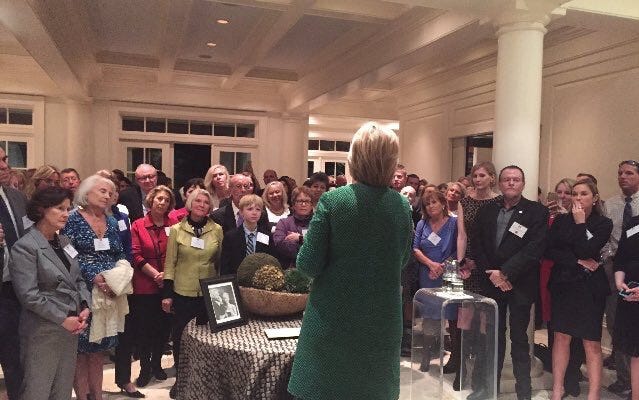The Respectability Politics Trap
Respectability politics have had a detrimental effect on American politics and our collective interaction with power.
It’s an unfortunate trope in today’s politics that there is a certain required level of decorum for the citizenry when interacting with the powerful. This decorum, referred to as “respectability politics,” is meant to encourage a genteel and proper discourse around politics and public service.
The term originates in a study of early black movements, but has since been expanded to include any and all marginalized groups. Respectability politics functions as a way for these groups to make sure their members fit into the societal mainstream, for the growth and health of the movement as a whole.
In the world of respectability politics, activists are expected to treat politicians and people of power and influence with a level of respect that they themselves do not receive.
On February 24, Black Lives Matter protester Ashley Williams rejected respectability politics to make a political stand.
Williams confronted Democratic presidential candidate Hillary Clinton at a fundraiser for the former Secretary of State. As Clinton delivered her prepared remarks, Williams emerged from the crowd and unfurled a banner quoting comments Clinton made in 1996 as First Lady.
The comments are provocative and their language is strikingly paternalistic and racially charged. Here is the offending passage in full:
We also have to have an organized effort against gangs, just as in the previous generation we had an organized effort against the mob. We need to take these people on. They are often connected to drug cartels. They are not just gangs of kids anymore. They are often the kinds of kids that are called ‘super-predators.’ No conscience, no empathy. We can talk about how they got that way but first we have to bring them to heel.
Williams’ banner read the last seven words, “We Have To Bring Them To Heel.”
Once Clinton noticed Williams, she tried to defer the conversation to later in her remarks. But Williams wasn’t having that, repeatedly telling Clinton “I am not a super-predator” until the Democrat’s security team ejected the activist.
During Williams’ confrontation with Clinton, voices in the (mostly white) crowd are heard saying “this is not appropriate” and telling Williams “you’re being rude!”
The attendees, pictured above, objected to her political activism and demanded she show respect for the former Secretary of State.
This is the ideology of respectability politics at its finest.
As Williams was removed from the building, Clinton declared she would get back to talking about “the issues I think are important” now that the distraction had been dealt with.
On February 25, Williams’ moment was all over the internet and some journalists were pushing Clinton and her campaign on her support and advocacy for the 1994 Crime Bill (in the interest of fairness, Senator Bernie Sanders, Clinton’s opponent in the Democratic primary, voted for the bill).
Others in the media, like the Washington Post’s Jonathan Capeheart, have spun the 1996 remarks and their context to defend Clinton.
This is all predictable. A story hatches and coverage and spin are born. It’s the way our political discourse is shaped and how it moves forward.
Clinton’s comments weren’t brought up before now in the media because the media wasn’t forced to address the issue. It took a vocal activist, rejecting respectability politics, rejecting the idea that challenging Clinton on the subject was as rude and inappropriate. As media critic Adam Johnson pointed out the next day, “One protester did what dozens of hack journalists wouldn’t and it was outstanding.”
It’s past time to reject the respectability politics trope. No person in a position of power and influence should be safe from challenge from any individual or group, no matter what the perceived consequences for that individual or group.
Ashley Williams did a brave and important thing by challenging one of the most powerful people in the world on the night of February 24. Let’s not allow the temptation to appear respectable stop any of us from taking similar actions in the future.
Since this post was first written, Williams has responded to the Clinton campaign with a powerful statement of her own. It’s reproduced below.







